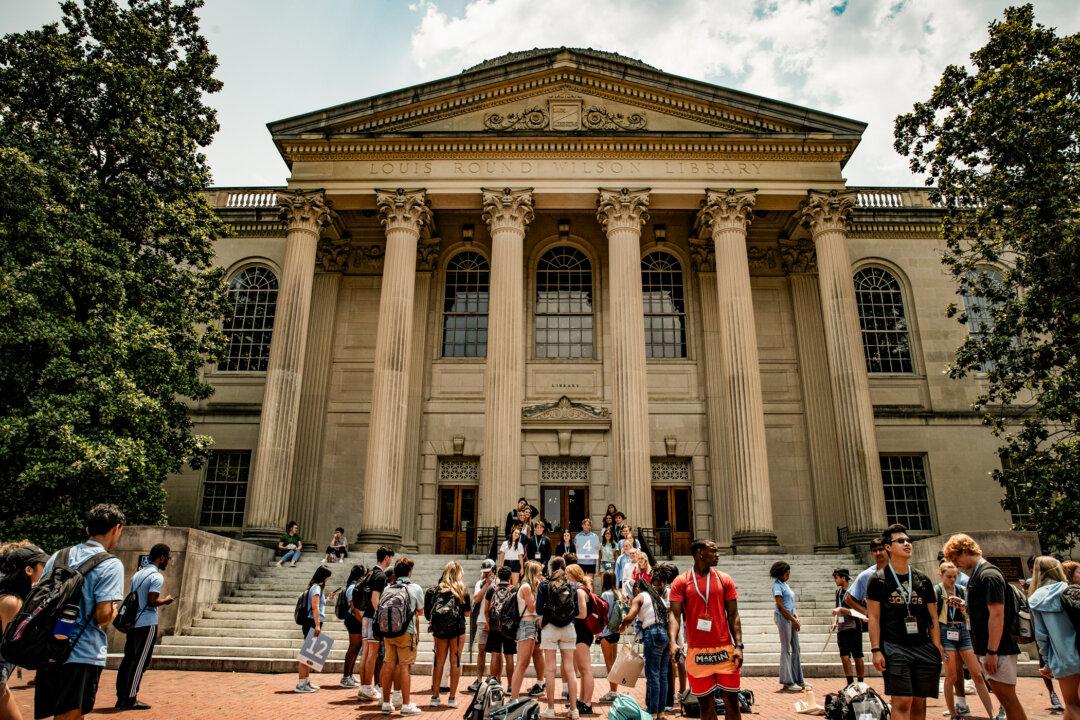The University of North Carolina-Chapel Hill has failed to meet its legal obligations to protect the right of the visiting speaker, journalist Bari Weiss, to express her views freely and to discipline members and supporters of Students for Justice in Palestine (SJP) who blatantly disregarded both university policy and state law by disrupting her talk and attempting to shout her down.
That’s the view of Speech First, a Washington-based advocacy group, which today sent the UNC-Chapel Hill board of trustees a letter, a copy of which The Epoch Times has obtained, outlining its concerns over events during at a Jan. 22 talk by Ms. Weiss and their aftermath.





